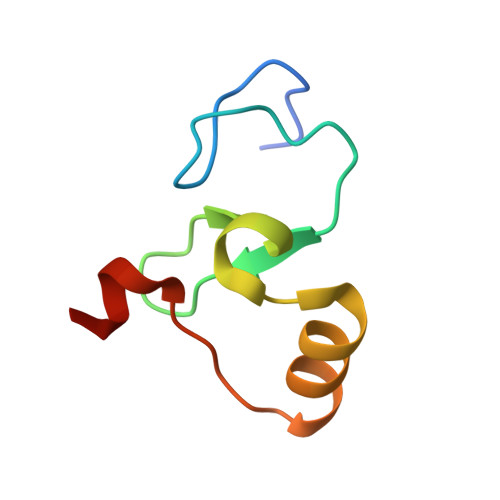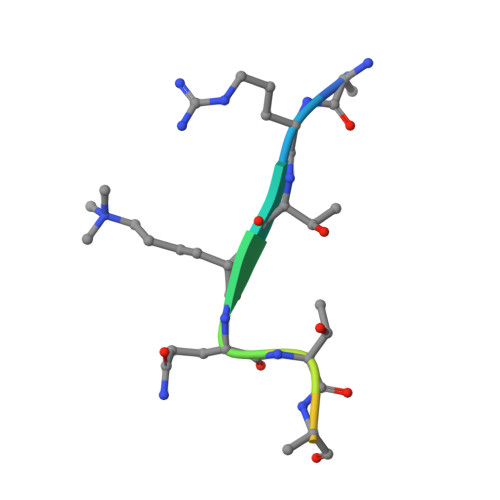A Unique pH-Dependent Recognition of Methylated Histone H3K4 by PPS and DIDO.
Tencer, A.H., Gatchalian, J., Klein, B.J., Khan, A., Zhang, Y., Strahl, B.D., van Wely, K.H.M., Kutateladze, T.G.(2017) Structure 25: 1530-1539.e3
- PubMed: 28919441
- DOI: https://doi.org/10.1016/j.str.2017.08.009
- Primary Citation of Related Structures:
5WLE, 5WLF - PubMed Abstract:
The protein partner of Sans-fille (PPS) and its human homolog DIDO mediate diverse chromatin activities, including the regulation of stemness genes in embryonic stem cells and splicing in Drosophila. Here, we show that the PHD fingers of PPS and DIDO recognize the histone mark H3K4me3 in a pH-dependent manner: the binding is enhanced at high pH values but is decreased at low pH. Structural analysis reveals that the pH dependency is due to the presence of a histidine residue in the K4me3-binding aromatic cage of PPS. The pH-dependent mechanism is conserved in DIDO but is lost in yeast Bye1. Acidification of cells leads to the accelerated efflux of endogenous DIDO, indicating the pH-dependent sensing of H3K4me3 in vivo. This novel mode for the recognition of H3K4me3 establishes the PHD fingers of PPS and DIDO as unique epigenetic readers and high pH sensors and suggests a role for the histidine switch during mitosis.
Organizational Affiliation:
Department of Pharmacology, University of Colorado School of Medicine, Aurora, CO 80045, USA.

















